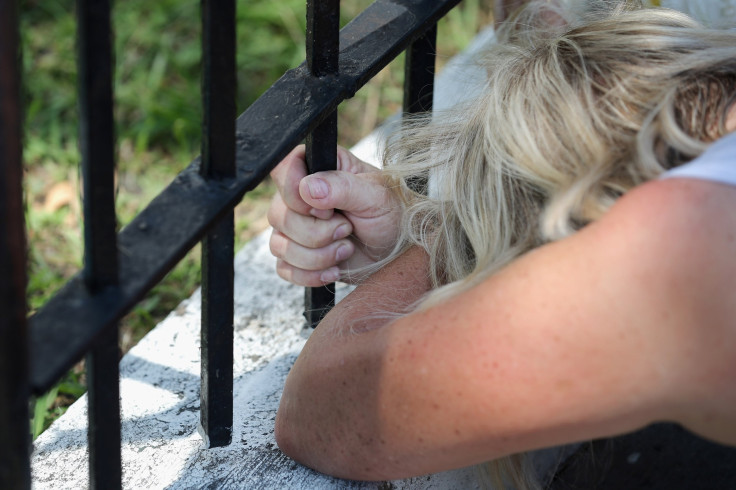Disbelief, Defiance In South Carolina Town Once Home To Shooting Suspect

LEXINGTON, South, Carolina (Reuters) - At Dooley's Bait shop in Lexington, South Carolina, the talk around the worm bins and minnow tanks was dominated by one subject: Dylann Roof, a previously unremarkable local young man now accused of one of most shocking murders in state history.
Roof, a 21-year-old white man who went to high school in this Southern town near the state capital, has been charged with murdering nine African-Americans in cold blood on Wednesday at a landmark church in Charleston, about 100 miles (160 km) away.
Many people in Lexington, as in towns across South Carolina, struggled to come to grips with one of their own being charged with such a heinous crime. In interviews this week, they also worried that Roof, a high school dropout who embraced racist symbolism and carried a handgun, will reinforce a pervasive and unflattering stereotype of white Southern males as a group of poorly educated, gun-toting racists.
"They think we're all like that young man, waving the Confederate flag with hate and racism," said lifelong resident Letha Drafts, 72, who works part time at Dooley's, a local hangout, and attends a church in Lexington that has a mixed race congregation.
Samantha Evans, at the downtown restaurant Creekside at the Old Mill, said she knows exactly the image the world has of them, "We're all racist hillbillies," she said. "But that couldn't be further from the truth. We're full of hospitality no matter what your race is."
Negative perceptions of Southerners were widely expressed on social media after the Charleston killings.
"So either these dumb rednecks are in tune with the universe and everyone else is wrong or they are just really racist," one person posted to Twitter.
Some perceptions of the South are rooted in demographics. A Pew Research Center analysis of U.S. census data found that poverty rates are highest in the Southern United States, where about 41 percent of the nation's people living below the poverty line reside.
The rate of gun ownership among whites is also higher in the South than in other regions, with about 48 percent of white Southerners saying they have guns in their homes, according to a Pew survey.
In Lexington, where Roof spent part of his childhood, residents are better educated than most in South Carolina, with 42 percent of adults holding a bachelor's degree, compared with a statewide average of 25 percent.
House values and income levels in Lexington, a growing town with a busy main street lined with brick buildings 12 miles (20 km) west of the state capitol of Columbia, top the state median, too.
The rate of people living below the poverty level was 11.7 percent, according to census data, below the state average of 18.1 percent.
Roof, however, appears to have dropped out of high school after repeating ninth grade in Lexington and then transferring to another high school in nearby Columbia.
On Saturday, a website emerged in which Roof appears to have written a racist manifesto and posed in photographs with a handgun and standing in front of a Confederate military museum and plantation slave houses.
Earlier this week, there were other suggestions in his online postings that he embraced racism. His Facebook page shows him wearing a black jacket that prominently features the flags of Rhodesia, now Zimbabwe, and apartheid-era South Africa - two African countries once ruled by the white minorities.
Another photo on Facebook, published by a friend, shows Roof sitting on the hood of a black car with a license plate that says "Confederate States of America," a reference to the pro-slavery breakaway republic that fought a civil war against the Union in the 1860's.
Defending Gun Culture
Lexington residents were eager to distance their community from the actions Roof is accused of. Eating a hamburger in the low-lit Main Street Cafe Bar and Grill, construction worker Brad Alan condemned the Charleston attacks, but also rejected any association between the crime and South Carolina's prevailing gun culture.
"You gotta go into a place of God and shoot people up? It's pathetic," said Alan, who said he owned guns for hunting.
The U.S. Constitution's guarantee of the right to bear arms is something many South Carolinians hold near and dear.
"This is the south, people grew up protecting their land," said Dave Blady, a 47-year-old car mechanic who moved 15 years ago to Lexington from Buffalo, New York.
David Barnes, 19, said he began using guns with his father as a young boy, starting with air rifles when he was 9. He has learned to use rifles, shotguns and pistols and now owns half-a-dozen weapons. His favorite is his Glock.
Still, he rejects what he thinks of as outside misperceptions of Southerners. "I know what some think, that we're dumb rednecks," he said while manning his family's fireworks stand off Route 1, adding that he received nearly perfect marks this year at college
Drafts, the Dooley's worker, dismisses the critics, too, saying that outsiders don't understand the complicated relationship the South has with the rest of the country. She also dismissed critics who say there are racist overtones to associations with the Civil War-era Confederate states.
"I'll tell you what, my two grown sons are proud members of the Sons of (the) Confederacy. They display the Confederate flag with pride, the same flag that flies at our state capitol ... That flag doesn't mean slavery, it means heritage.""I wish the history books would get it right," she added. "The [U.S. Civil] War was over state's rights, not slavery."
© Copyright Thomson Reuters 2024. All rights reserved.





















